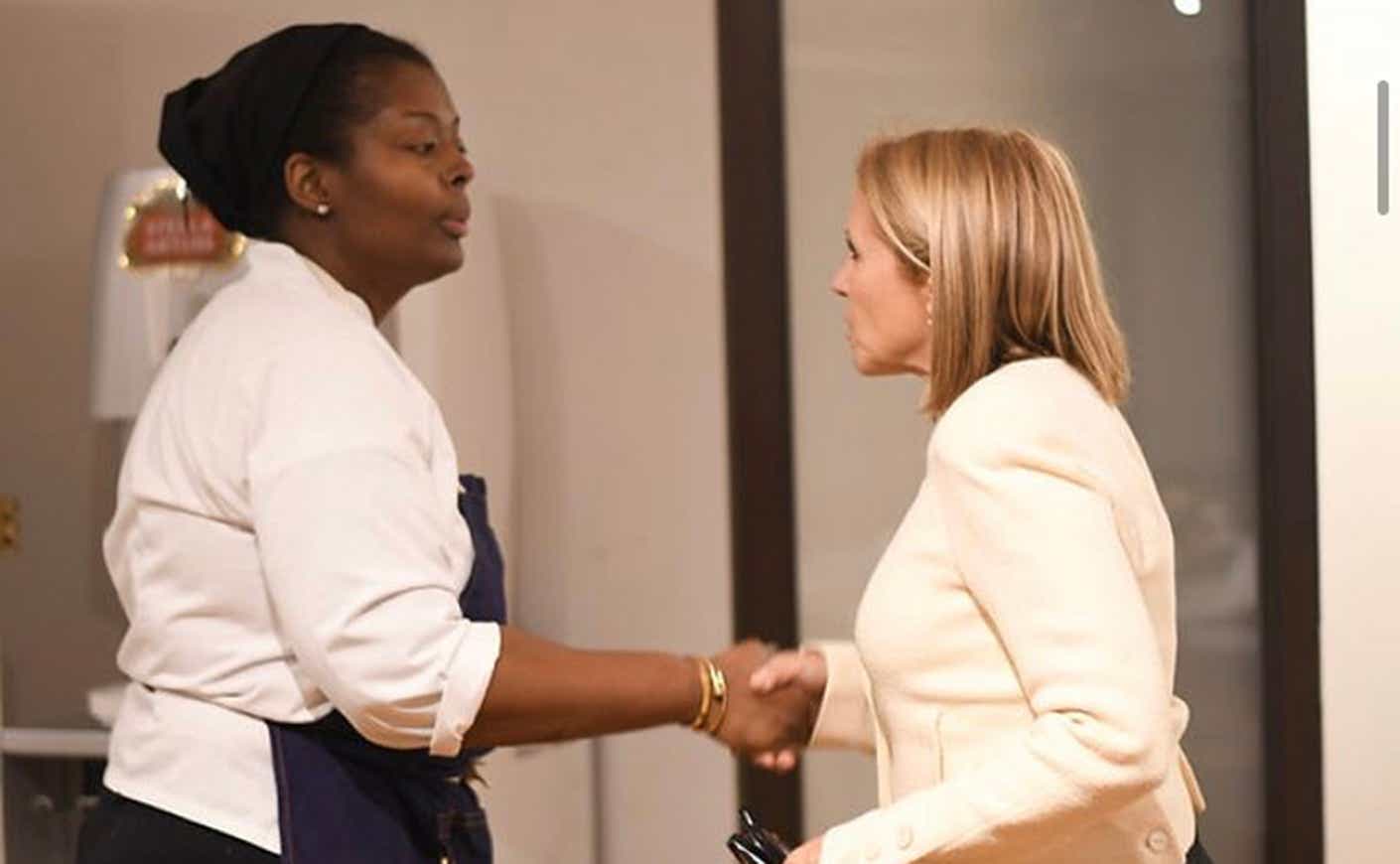Meet Millie Peartree, a soul food chef based in the Bronx. When the pandemic hit New York City, Millie switched gears to provide prepared meals for her community.
The Bronx is New York City’s poorest borough with 31 percent of children living in a food-insecure home. Last March, the pandemic forced 50 percent of food pantries and soup kitchens in the Bronx to close their doors. Through Full Heart, Full Bellies, Chef Millie has partnered with organizations like Tyson Foods and Coca-Cola to provide more than 79,000 prepared meals to children in her community. “We came up with the idea to bring the restaurant to the children,” Chef Millie told us. “A lot of parents don't have money to buy groceries — let alone get a child a Happy Meal.” We spoke with the soul food chef about what inspired her to take action and what needs to change to address food insecurity in the U.S.
Katie Couric Media: You have a long history with food. How can food bring people together — especially during challenging times?
Millie Peartree: Cooking and baking comes from the heart. It can also make an impact on other people’s lives in a big way. I saw the power of food to comfort and heal in action when we donated meals during the pandemic to essential workers such as nurses, doctors, postal workers, and workers in bodegas. And we prepared and donated 5,000 meals across New York City to protesters in partnership with the World Central Kitchen and Frontline Foods.
I felt that power myself when I baked to help me cope after my mom passed away. Suddenly, it was up to me to take care of my four brothers and sisters, two of whom are autistic. I used to cook Southern food with my mom and that soon turned into a business when I started my restaurant in the Bronx, Fish Fry & Soul Food. Now, that business has turned into a powerful way for me to make a difference in my community.
When the pandemic hit, you launched Full Heart, Full Bellies to help provide meals in your community. What inspired you to take action?
We launched Full Heart, Full Bellies in the beginning of July. It was initially an eight-week feeding program that is now going strong in my native Bronx, the poorest of New York’s five boroughs. We created the initiative to fill the gap when a lot of food programs — mainly in the schools — were canceled due to Covid-19.
What types of meals have you been serving the community through Full Heart, Full Bellies?
We came up with the idea to bring the restaurant to the children. A lot of parents don't have money to buy groceries — let alone get a child a Happy Meal. We gave them a fully composed meal that consists of a protein, whole grains or starch, a beverage, fruit, and occasionally a snack that could be saved for the next day. The meals are big enough that they can be possibly split into two meals. We focused on making the hometown favorites — from jerk chicken and Curried rice to peas and cabbage and chicken fingers.
We’re now more than a year into the pandemic. How has Full Heart, Full Bellies made an impact?
We are serving 600 meals three times a week with kitchen space donated by Amazon; support from Restaurant Associates; Coca-Cola (which provides water and Minute Maid juices); Barilla Pasta; a New Jersey bakery The Bread Gal Bakery (a certified women-owned bakery that supplies us with muffins); and volunteers from all over the city. Everybody has stepped in to help out, and we’ve also received a lot of donations from ordinary folks to try and bridge the hunger gap.
The program ends on Friday, May 28. It was a blessing to expand what was intended to be an 8-week program to 11 months. When we’re done, we’ll have served more than 79,000 meals to kids who really need them. And my hope is that the program will be picked up by other marketers and spread from community to community.
What has been the most powerful moment for you throughout your experience this past year?
I was donating meals to the Lincoln Hospital, which is actually a trauma hospital. However, during that time, they had converted all of their units into rooms for Covid-19 patients. I spoke with one of the administrators and she told me that the morgue has been the forgotten place throughout this crisis. So, I made sure to donate meals out of my own pocket to the morgue, because, in my mind, the morgue is one of the most gruesome places in the world. I wanted to make sure I brought a smile to their face. It was a nice moment to be able to interact with the people who aren’t necessarily caring for life but are dealing with the traumatic effects of dealing with death at the end of the day.
What needs to change to address food insecurity in the U.S.?
I think the issue with food insecurity is there's no structure. The government needs to appoint a Secretary of Food. There's so much food that goes in the garbage, and there’s no reason why we should be throwing away food in the richest country in the world. Absolutely no reason.
To donate to Full Heart, Full Bellies, click here.









